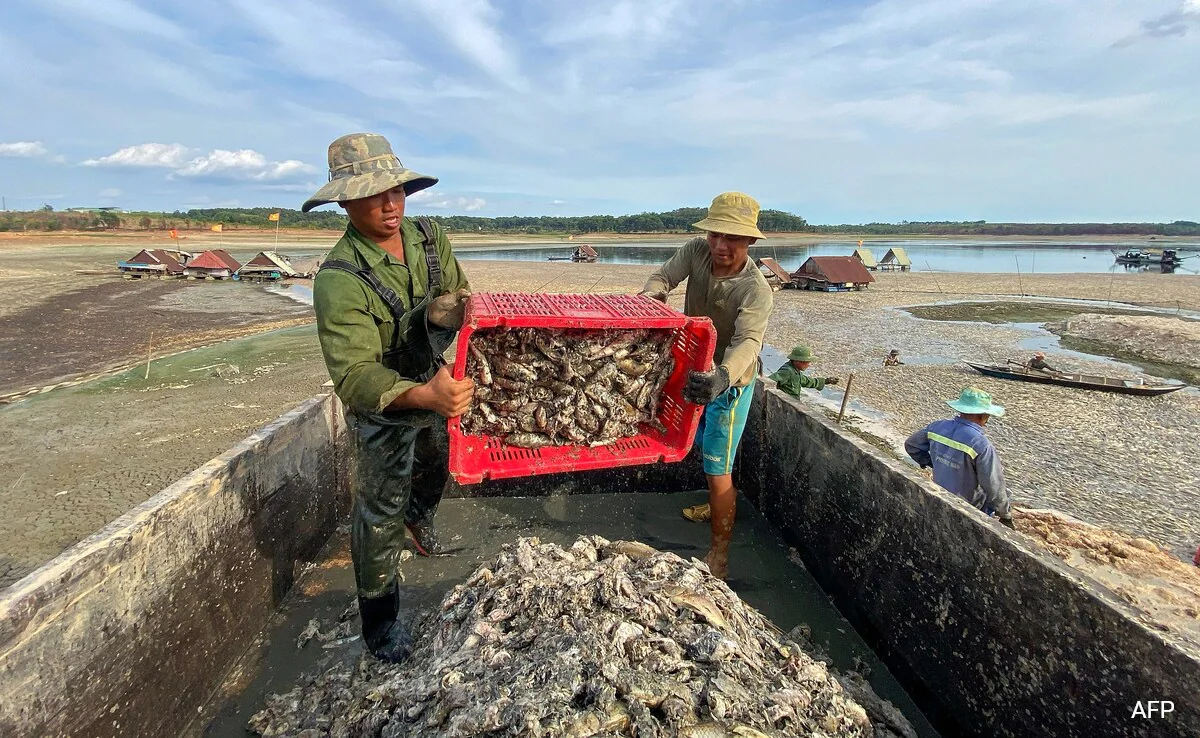
Amidst a brutal heatwave sweeping across Southeast Asia, southern and central Vietnam find themselves grappling with dire consequences. The scorching temperatures have not only led to early school closures and a surge in electricity usage but have also resulted in a devastating loss of marine life in Dong Nai province’s Song May reservoir.
Reports emerge of hundreds of thousands of fish perishing due to a combination of factors, primarily attributed to the merciless heatwave and mismanagement of the reservoir. Local resident Nghia laments the dramatic turn of events, describing how the once vibrant reservoir has transformed into a graveyard for aquatic creatures. The absence of rain for weeks exacerbates the situation, causing water levels to plummet to unsustainable levels for the fish population.
Efforts by reservoir management to alleviate the crisis, including water discharge and dredging operations, prove futile in the face of nature’s relentless onslaught. Initial plans to release extra water into the reservoir to support the fish are thwarted by the unyielding heatwave, exacerbating the water level decline and subsequently leading to mass fish deaths.
The repercussions of this ecological catastrophe extend beyond environmental concerns, as the Song May reservoir serves as a vital water source for crops in adjacent districts. Authorities scramble to contain the fallout, launching investigations while urgently removing the carcasses of the deceased fish. Local communities express hope for swift action from authorities to rectify the situation and mitigate further damage to the ecosystem.
Meanwhile, weather forecasters paint a grim picture of soaring temperatures in Dong Nai province, shattering previous records and exacerbating the already dire situation. The blistering heatwave shows no mercy as neighboring Cambodia grapples with similarly sweltering conditions, prompting proactive measures from the government to safeguard the populace.
Cambodian Prime Minister Hun Manet’s directive to consider school closures underscores the severity of the situation, prioritizing the well-being of students and educators amidst the scorching heat. Education Minister Hang Chuon Naron echoes this sentiment, implementing measures to minimize exposure to the sun’s relentless rays and mitigate health risks.
In Thailand, the heatwave’s impact manifests in unprecedented electricity usage as temperatures soar to staggering heights in Udon Thani province. The situation underscores the region’s vulnerability to climate change and the urgent need for proactive measures to mitigate its adverse effects.
As Southeast Asia continues to grapple with the ramifications of the relentless heatwave, the plight of Dong Nai province serves as a stark reminder of the fragility of ecosystems in the face of climate change. Urgent action is imperative to address the immediate consequences of the crisis and implement long-term strategies to build resilience against future environmental challenges.
In conclusion, the devastating impact of the heatwave on Vietnam’s fish population underscores the interconnectedness of environmental and socio-economic factors in the face of climate change. It serves as a wake-up call for concerted efforts to mitigate the adverse effects of global warming and safeguard the planet’s ecosystems for future generations.
